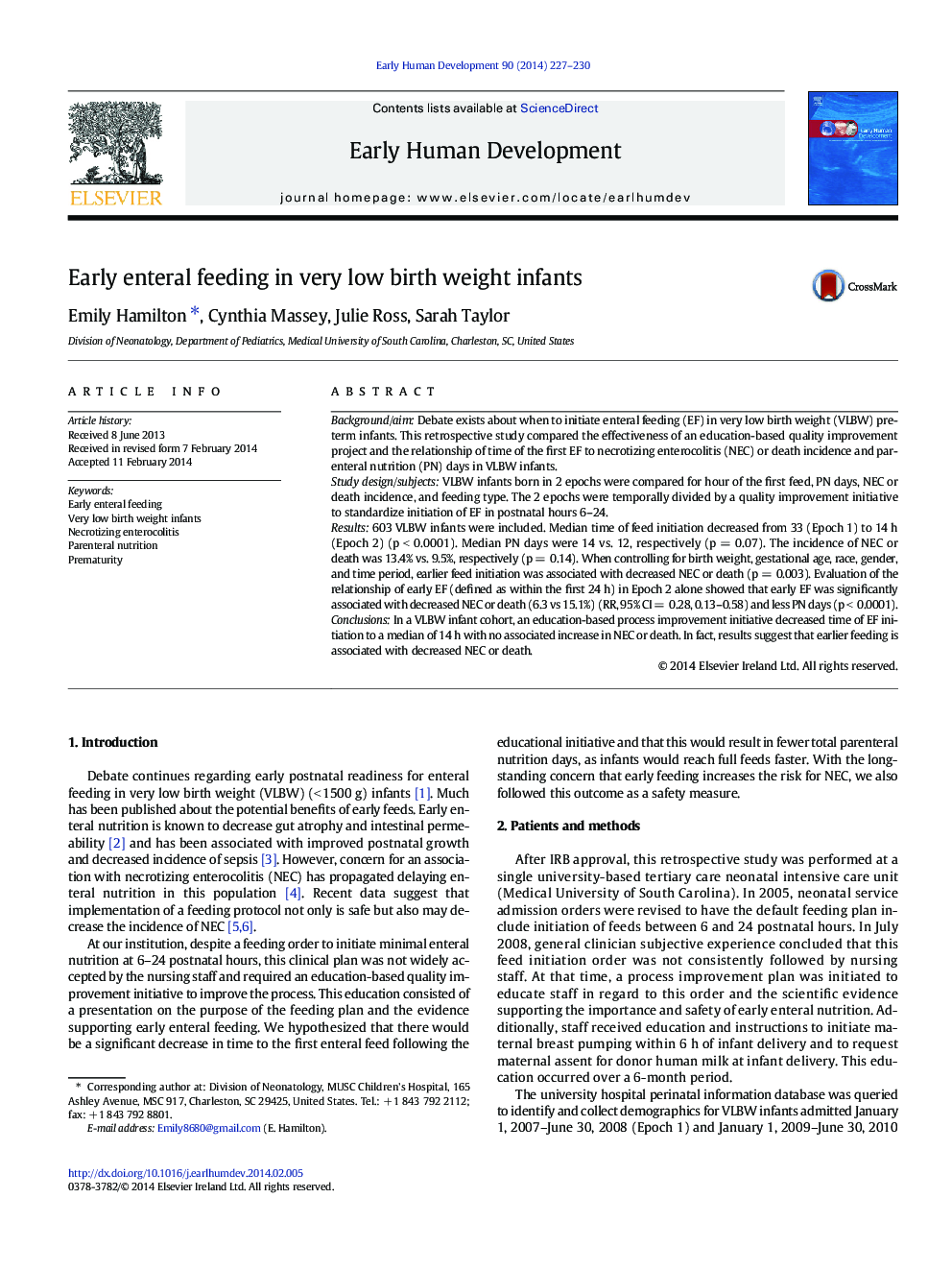| Article ID | Journal | Published Year | Pages | File Type |
|---|---|---|---|---|
| 6172239 | Early Human Development | 2014 | 4 Pages |
Background/aimDebate exists about when to initiate enteral feeding (EF) in very low birth weight (VLBW) preterm infants. This retrospective study compared the effectiveness of an education-based quality improvement project and the relationship of time of the first EF to necrotizing enterocolitis (NEC) or death incidence and parenteral nutrition (PN) days in VLBW infants.Study design/subjectsVLBW infants born in 2 epochs were compared for hour of the first feed, PN days, NEC or death incidence, and feeding type. The 2 epochs were temporally divided by a quality improvement initiative to standardize initiation of EF in postnatal hours 6-24.Results603 VLBW infants were included. Median time of feed initiation decreased from 33 (Epoch 1) to 14 h (Epoch 2) (p < 0.0001). Median PN days were 14 vs. 12, respectively (p = 0.07). The incidence of NEC or death was 13.4% vs. 9.5%, respectively (p = 0.14). When controlling for birth weight, gestational age, race, gender, and time period, earlier feed initiation was associated with decreased NEC or death (p = 0.003). Evaluation of the relationship of early EF (defined as within the first 24 h) in Epoch 2 alone showed that early EF was significantly associated with decreased NEC or death (6.3 vs 15.1%) (RR, 95% CI = 0.28, 0.13-0.58) and less PN days (p < 0.0001).ConclusionsIn a VLBW infant cohort, an education-based process improvement initiative decreased time of EF initiation to a median of 14 h with no associated increase in NEC or death. In fact, results suggest that earlier feeding is associated with decreased NEC or death.
